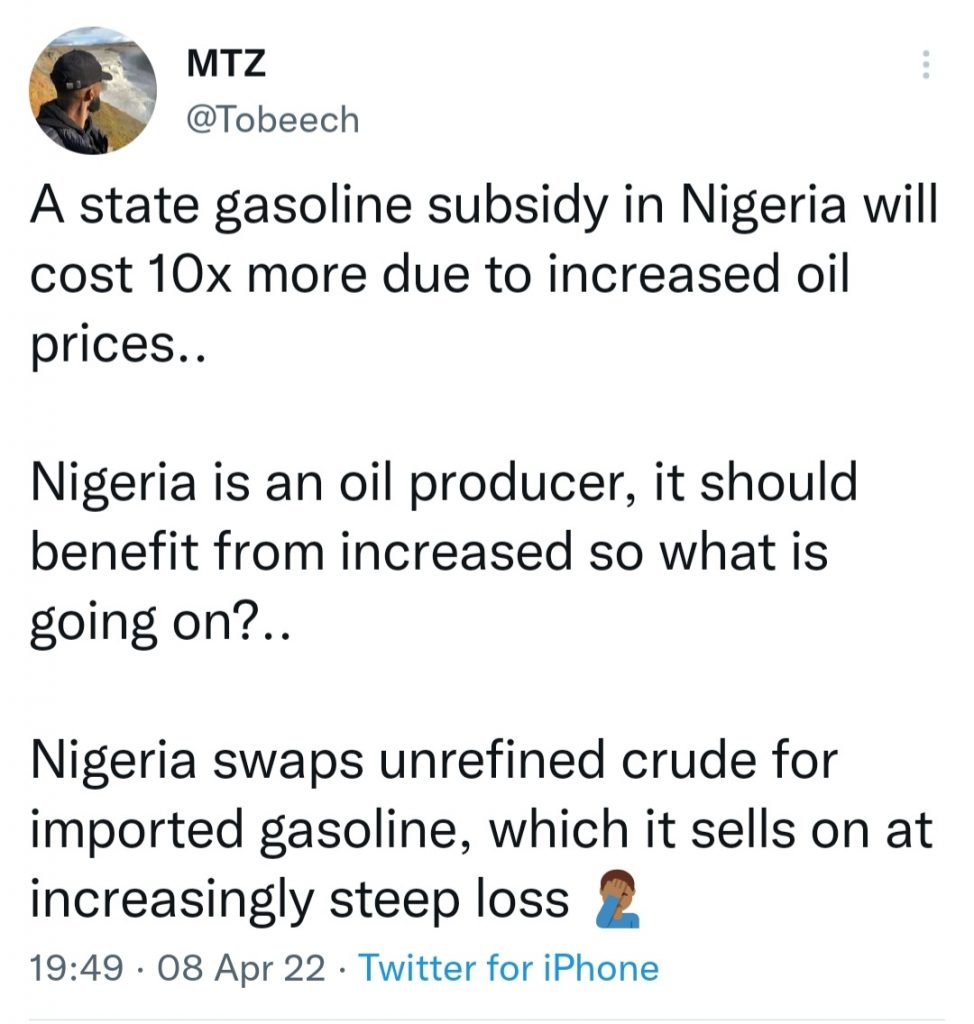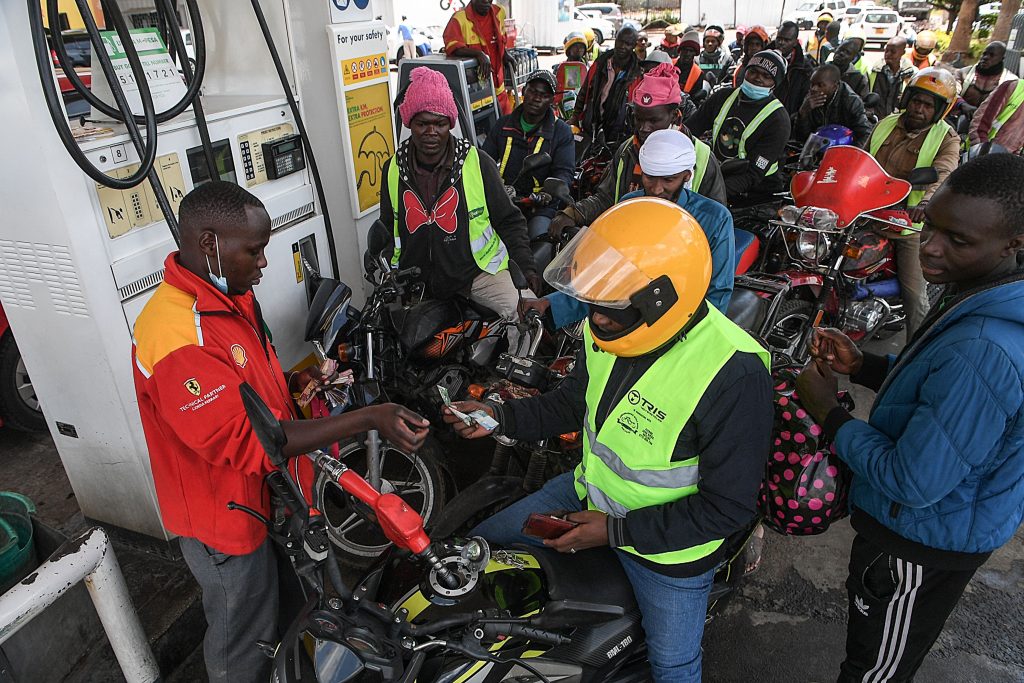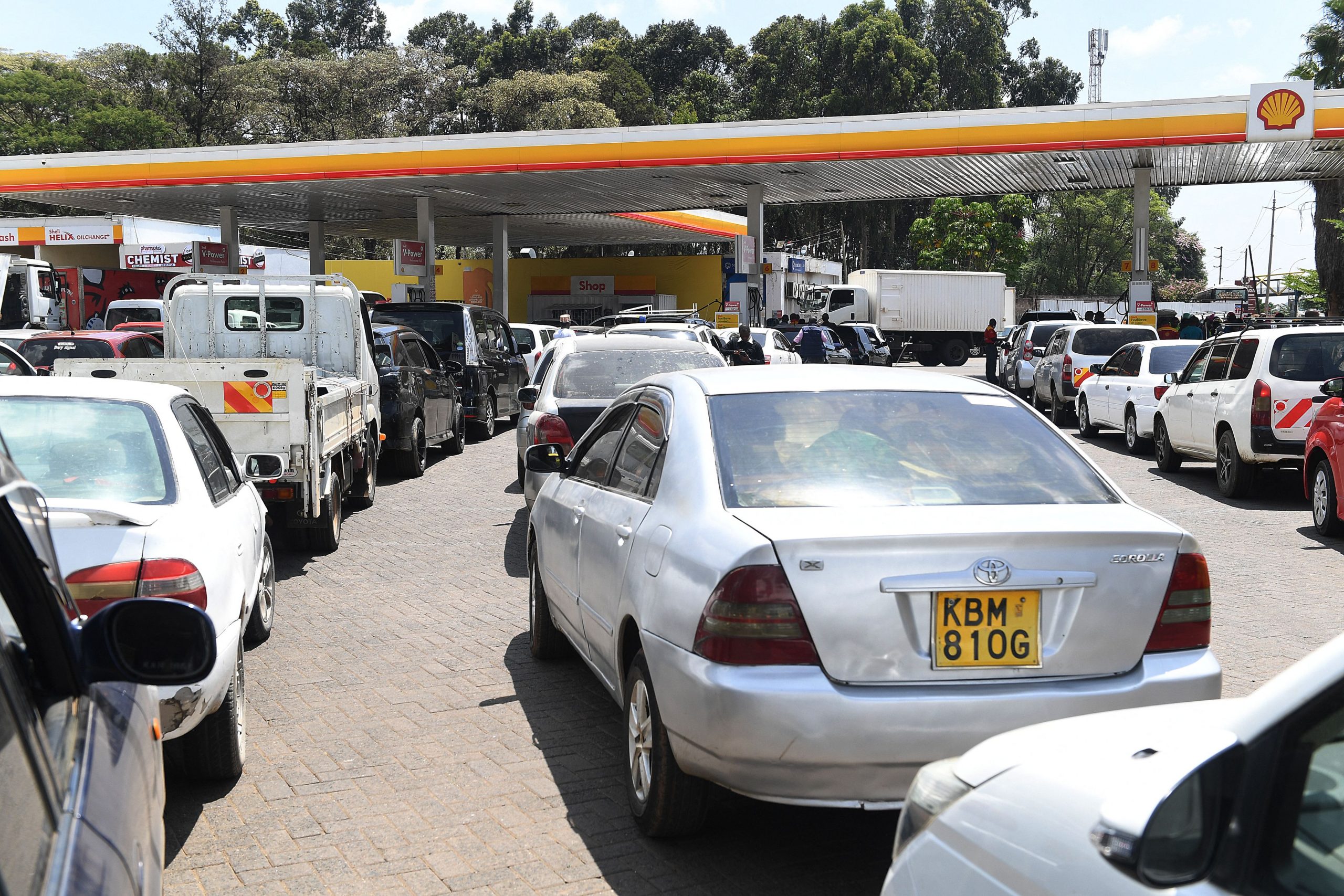Chaos and long queues have become the order of the day at different filling station across large cities of Africa. Blaring of car horns as many motorists wait in line for long hours are the scenes being witnessed on a daily at different fuel pumps in the continent. With queues now spilling over onto the main roads disrupting the traffic. The question that lingers in many people’s minds is why is there so much trouble at local pumps across many African countries?
Take for example, Africa’s biggest exporter of crude oil, Nigeria, has been facing fuel shortage woes since February after the country imported fuel that contained a huge amount of methanol in it thereby making it substandard. This development resulted into a shortage of petrol and queues reappearing in major cities across the country which has since spread to all parts of the country.
Let’s take a look back to 2021, where the federal government of Nigeria announced a plan to do away with fuel subsidies – but this did not sit well with parties involved in both the marketing and regulation of the commodity. In fact, marketers who the regulators accuse of hoarding the product have adamantly refused to resume normal operations even after the suspension of the subsidy removal plan. This in turn has caused a huge number of motorists to rely on far more costly black market supplies for their fuel needs, which endangers their engines from the adulterated products.

I know you are probably wondering how Africa’s leading oil exporting country like Nigeria can’t meet its people’s demands. Well, Nigeria imports almost all of its petroleum products, partly because none of the country’s four refineries work. When combined, these refineries would have a capacity of 445,000 barrels a day but authorities in the country blame mismanagement and corruption for its constant failure.
“I agree, imports have been an issue for the west African nation and with the operational delays for its oil refinery infrastructure, the problems are even more evident. Nonetheless, it is vital to note that fiscal deficits have meant the government has had to slow down some of these planned oil projects.”
“Just recently the Organization of the Petroleum Exporting Countries (OPEC) reported that Nigeria’s crude oil production declined to an average of 1.417 million barrels per day in February 2022. This in turn ensues OPEC’s recent move to have members cut production. In so doing, even planned refineries would in essence have to be delayed,” says Arnold Segawa an economic consultant.
The fuel situation is not limited to Nigeria alone, in the past few days, Kenya has joined the unfortunate path with many filling stations remaining dry and where the commodity is available the prices have risen to prohibitive levels and the long queues are overwhelming. While the fuel shortage was blamed on the failure of the government to pay oil marketers their subsidy, the situation is still dire in most parts of the country days after President Uhuru Kenyatta signed a supplementary budget for the payment of $298 million to the Petroleum Development Levy Fund.
Across Africa, fuel prices have reached all -time highs with governments looking for ways and means to counteract on these. These measures include introduction of fuel levies that cushion consumers from volatility of fuel prices.
In Tanzania, President Samia Hassan reversed a decision by the energy ministry to suspend a $0.043 fuel levy. She said the levy was necessary to protect its citizenry against the impacts of global oil prices worldwide.
South Africa also reduced its general fuel levy as a means of cushioning its citizens from the impact of high global fuel prices. The duty imposed on each liter of fuel will be reduced by almost 40% from April 6 until May 31

Global oil prices skyrocketed in 2021 following the recovery of the global economy from COVID-19 shocks sparking an increase in demand for petroleum products. To top all this up the Russia-Ukraine stalemate that began in February has made everything worse. With global oil prices spiking over concerns of supply crunch. The current state of affairs is overwhelming for most countries in Sub-Saharan Africa which begs the question, will this situation get worse in time?
“From political headwinds and risk over the potential turmoil in Europe has seen a reactionary rally, with sanctions on Russia threatening the crude oil price future. Also another aspect that could threaten the future of oil prices is the OPEC+, who have intentionally agreed to cut production in a bid to lift demand hence the price increase,” adds Segawa
Russia is one of the top three crude oil producers in the globe alongside USA and Saudi Arabia. Although sanctions on Russia in relation to the stalemate don’t directly target the countries oil exports, the global oil market is experiencing shocks in anticipation that Russia’s oil production could be throttled. Crude oil prices surpassed $100 per barrel for the first time since 2014.
Like other frontier economies, countries in Africa are experiencing reeling oil prices and it is getting worse by the day. What we wait to see is whether governments are strong enough to take the heat. We expect new and stronger measures to help cushion the countries from the impact of high oil prices. As a long term measure to curb all this trouble, African nations should invest heavily in strategic oil reserves. The continent has done terribly at investing for the rainy days and what we are experiencing currently is the result.
“Investing heavily in research and development as well as solar will go a long way in making Africa the next frontier in energy supply. Africa has 40 % of the world’s solar potential but only 1 % of the world’s solar panels, according to recent estimates,” reiterates Segawa

